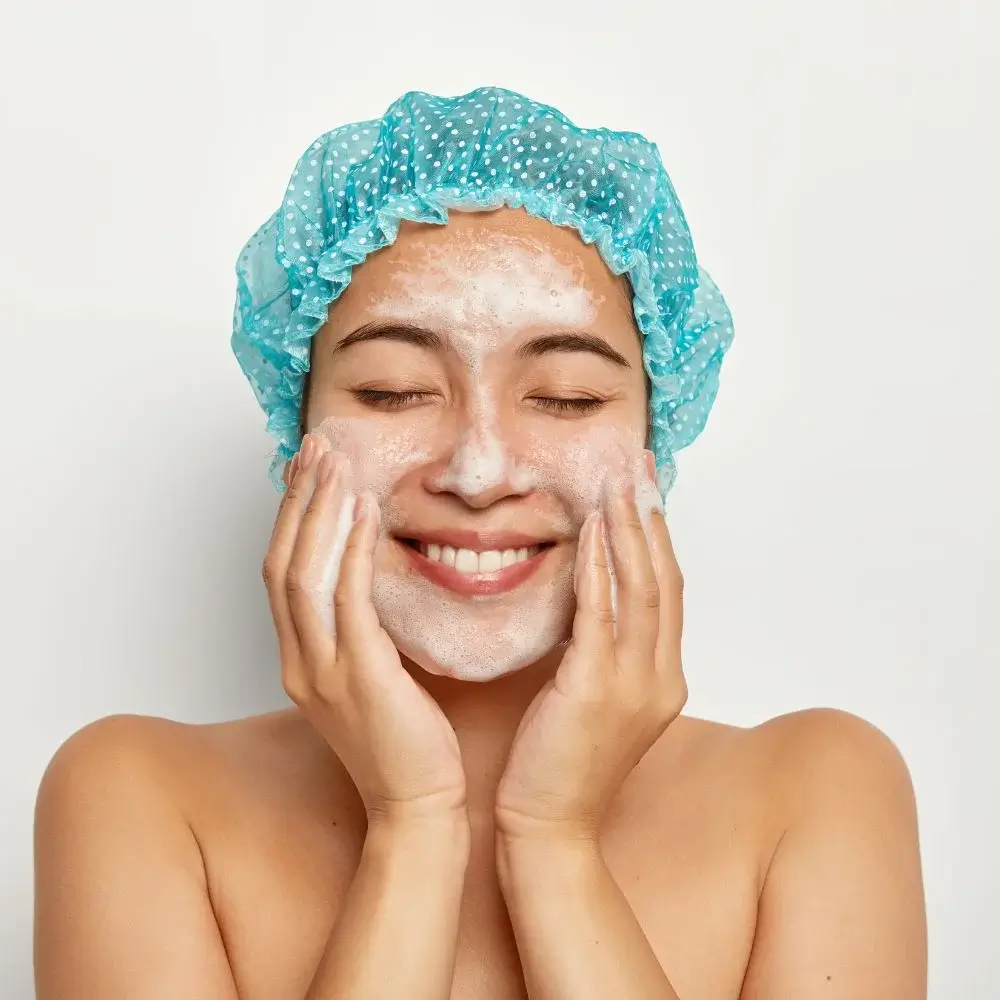Many beauty trends come and go, but one that has stood the review of time is using rice water as a facial wash. Rice water has been used for centuries in Eastern cultures to improve the appearance of their skin. Rice contains inositol, a carbohydrate that helps skin retain moisture, and vitamins E and B, which can help improve skin elasticity, reduce inflammation, and provide anti-aging benefits. But how is rice water collected for face wash? In this post, we'll go through the process of collecting rice water and some tips for using it in your daily skincare routine.
Step 1: Rinse the rice thoroughly
Before you can collect rice water for your face wash, you'll need to rinse the rice to remove any dirt, debris, or impurities that may be present. To do this, rinse a cup of rice several times with clean water until the water runs clear.
Pro Tip: Use organic, pesticide-free rice to avoid any chemicals transferring to your facial skin.
Step 2: Soak the rice in water
Once the rice is rinsed, transfer it to a bowl and let it soak in water for at least half an hour. The rice should be fully submerged in water, and there should be enough water to create rice water later.
Step 3: Strain the rice water
After soaking the rice for at least 30 min, it is time to extract the rice water. Use a sieve or a clean cloth to strain and remove any solids from the water.
Pro Tip: Don't throw the leftover rice; you can use it in its form for cooking or, better yet, store it in the refrigerator to apply later on your face.
Step 4: Store the Rice Water
Transfer the rice water to a clean container once you have strained the rice water. Keep the rice water refrigerated for up to a week and use within that time.
Step 5: Apply Rice Water in your Skincare Routine
Rice water can be used as a mild, gentle facial cleanser. Simply apply rice water to your face with a cotton ball, gently massaging the skin in a circular motion. Rinse with warm water and follow up with your favorite moisturizer. Alternatively, you can keep the rice water in a spray bottle and use it as a toner.
Pro Tip: When mixing rice water with other skincare products, start with just a few drops and gradually increase the amount as needed. Rice water can be potent and too powerful if used in large amounts.
Using rice water as a facial cleanser is a simple and easy way to improve the appearance of your skin. By following these steps for adequately collecting rice water and integrating it into your daily skincare routine, you can join the ancient tradition of using it for healthier, younger-looking skin. It is important to remember that everyone's skin is different, and some may be more sensitive than others, so it's always best to do a patch review first. With that in mind, try rice water, and you may notice improved skin health and radiance in no time!
Say hello to a refreshed and glowing complexion with our top pick for the ultimate rice water face wash. Our team of experts has spent countless hours researching to bring you the best product out there. Made with the finest ingredients, this face wash is perfect for all skin types and will leave you feeling revitalized and radiant. But don't just take our word for it! Click the link now and discover your new go-to rice water face wash that will have you feeling confident and beautiful in no time.
What are the environmental impacts of using rice water face wash?
Using rice water face wash typically has minimal environmental impacts as it's a natural byproduct, reducing the need for harsh chemicals in cosmetics. The cultivation of rice, however, can have environmental implications. Opting for brands prioritizing eco-friendly packaging and sustainable rice cultivation practices further reduces the footprint. Sustainable practices include water-efficient farming, reduced chemical use, and support for ethical labor practices. By supporting responsible sourcing and reducing plastic waste, you can positively contribute to the environment while enjoying the benefits of rice water for your skin.

What are the differences between using rice water face wash and toner?
Rice water face wash and toner serve distinct yet complementary purposes in skincare. Face wash cleanses your skin, removing dirt and impurities, while toner balances pH levels, tightens pores, and preps your skin for moisturizers. Rice water face wash primarily focuses on cleansing, while toner enhances skin texture, promotes the absorption of subsequent products, and helps maintain the skin's natural balance. Combining both can lead to a more comprehensive skincare regimen, ensuring your skin is clean and well-prepared to benefit from other products.

What are the potential alternatives to rice water for facial cleansing?
If you're seeking alternatives to rice water for facial cleansing, several natural options are available, catering to various skin types and preferences. Consider honey, which offers gentle cleansing, antimicrobial properties, and moisture retention. Aloe vera gel is another excellent choice, known for its soothing, hydrating, and anti-inflammatory effects. Alternatively, opt for milk-based cleansers, which effectively remove impurities while providing nourishment through vitamins and proteins. Exploring these alternatives allows you to find the perfect fit for your skincare routine while enjoying diverse benefits.

How do you make rice water face wash more soothing for sensitive skin?
You can take other steps to make rice water face wash more soothing for sensitive skin. Begin by diluting it with distilled water to reduce its potency, making it milder and less likely to irritate. Adding a few drops of chamomile or lavender essential oil to the mixture can further enhance its calming effects. Before applying to your face, it's essential to perform a patch review on a small area to ensure compatibility with your skin and to prevent any potential adverse reactions. This extra care is particularly beneficial for individuals with sensitive skin, allowing them to enjoy the benefits of rice water without discomfort.

How can you combine rice water face wash with other skincare products?
To effectively integrate rice water face wash into your skincare routine, consider it your initial cleansing step. After rinsing off the face wash:
- Follow up with a toner to balance your skin's pH levels.
- Continue with a serum targeted to your specific skincare concerns, and finish with a suitable moisturizer.
- Ensure each product you select complements the others to achieve your desired skin goals.
A well-balanced skincare regimen incorporating rice water face wash can contribute to healthier, more radiant skin, addressing multiple aspects of your skin's needs.
Should I avoid sun exposure after using rice water face wash?
While rice water face wash doesn't make your skin more sun-sensitive, it's essential to incorporate proper sun protection into your daily routine. Sunscreen is crucial to prevent premature aging and reduce the risk of skin damage from harmful UV rays. Regardless of your skincare routine, applying sunscreen daily ensures comprehensive protection, allowing you to enjoy the benefits of rice water face wash while maintaining healthy and youthful skin. Be diligent in selecting a broad-spectrum sunscreen with adequate SPF and reapply it as needed for optimal defense against UV radiation.







